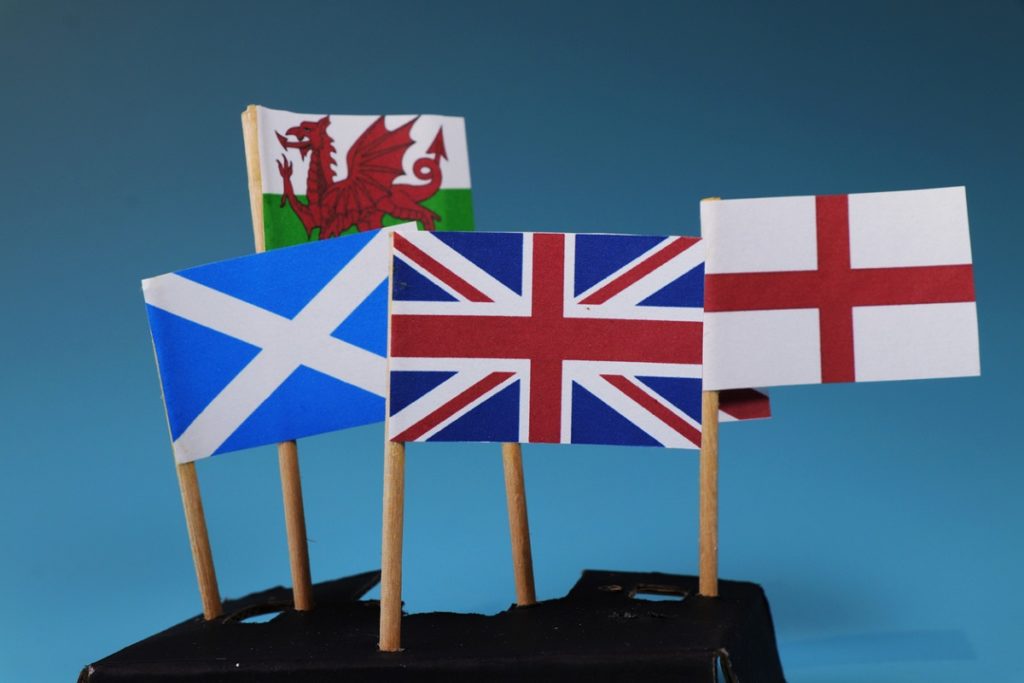“Britishness” is an awkward phenomenon. Its proponents – including those in government – claim it stretches across the furthest reaches of the United Kingdom, never stopping, not even for Nicola Sturgeon. But “Britishness” rarely manifests practically or positively, and many “Britons” are, at best, indifferent to the whole thing. On this St George’s day, when we are reminded of the romantic pull of “Englishness”, it is worth considering that no comparable “national day” exists for those loyal to Britain.
In 2014, Michael Gove claimed that “Britishness” is underpinned by a respect for “democracy, the rule of law, individual liberty and mutual respect, and tolerance of those with different faiths and beliefs”. But these ideas are hardly unique to Britain. Would Sturgeon, Adam Price or Michelle O’Neil reject such values in their respective definitions of “Scottishness”, “Welshness” and “Irishness”?
That “Britishness” is largely transparent in British society should not be a controversial statement. The recent resurgence of government-led patriotic initiatives tacitly admits the “problem” at hand. The government announcement that buildings will fly the Union Jack every day, the government’s unfettered vaccine nationalism and the recent “race report” are all part of a broader mission to reinvigorate “Britishness” in a post-truth, post-Brexit world.
Flush with imperial delusions of British grandeur, the government has inaugurated a new era in identity manufacturing. And so, rather than understand what “Britishness” is/was, government thinkers focus on what “Britishness” can do – and what it can achieve for them.


At its most effective, nationalism distorts time and space. It transforms past statesmen into ageless symbols of national character and inspires communion among distant peoples. For nationalists, a critique of Churchill is indistinguishable from an attack on “Britain” itself – and that a Scotsman might question Westminster’s representative capabilities is roundly viewed as absurd.
And yet nationalism is all-too-often treated as a theoretically sound and even rational “ideology”. It is now time to underline nationalism’s very particular philosophical emptiness.
On March 31st, the government published its much-anticipated report on “Race and Ethnic Disparities” in Britain. The report concluded that the UK “no longer” has a system rigged against people from ethnic minorities, and even promoted the UK “as a model for other white-majority countries”.
Commissioned in the aftermath of the anti-racism protests last summer, campaigners were nonetheless quick to question the report’s intentions. They pointed to comments by Tony Sewell (the Johnson-appointed head of the commission) on institutional racism. In this light, the “race report” appeared long destined to be smothered in a shiny nationalistic gloss.
28 pages into the report, there begins a curious sub-section entitled “Open Britain”. At this juncture, we are transported back to the opening ceremony of the London 2012 Olympics where “we saw an array of people and cultures from the sleepy English countryside to the frenetic music of the inner city.” “On that day”, the report recalls, “the whole nation was proud to be British”.
Ever since the Olympic flame was extinguished at London 2012’s closing ceremony, nationalists have used the games to nurture British pride. It is easy to see why. The games projected to a global audience that Britain is outward looking, multicultural, tolerant, successful. And for the game’s domestic consumers, the 2012 Olympics was a rare opportunity for Britons to interact with, and experience, their nation.
The London 2012 Olympic Games proved an arresting medium through which organisers could broadcast “brand Britain”. But, in doing so, they set too high a standard. Events such as London 2012 exhibit an exemplary “Britishness” that Brexit, Boris and the Oprah-meets-Meghan interview undermine. Britain consistently fails to fulfil the visions of itself that it presents to the world.
Like London 2012’s opening and closing ceremonies, British nationalism is carefully choreographed and curiously performed. It is sounded by high-powered fireworks, but hollow to the core. In an attempt to exploit nationalism’s political power, the race report evoked the emotions of London 2012 and, by some measures, it succeeded: the Daily Mail led with “Britain’s Race Revolution” on the morning of the report’s publication.
The destructive potential of nationalist thought is illustrated in terrifying detail across the race report. When millions were crying out for a good-faith investigation into institutional racism, the report’s gross nationalistic excesses mauled any chance of justice. It is clear that the government’s proclivity for nationalist performance fails the marginalised first and foremost.
British nationalism has long been associated with a pompous but unjustifiable moral superiority. Although nationalist sentiment is frequently viewed as a sign of inner strength – of loyalty to “higher” values, the recent resurgence of nationalistic faux-optimism reads only as a sign of profound anxiety at the state of “Britishness” and the UK itself. The vast sums of political capital invested in these nationalist machinations communicate how deeply this national insecurity runs.
At a time when “Britishness” is throttled by emboldened separatist movements, Johnson is confident that nationalistic hocus-pocus can save the deeply-imperilled UK. However, by betting his career and legacy on “Britishness”, Johnson has become the willing plaything of nationalism’s warring internal dynamics: its political power and philosophical poverty.
So while Johnson might see short-term successes (the local elections, for example), nationalism’s inherent and unavoidable incoherence threatens long-term crises. No government can long sustain on nationalistic lies.
Nationalism presents any liberal-minded opponent with a puzzle. When we observe St George’s Day celebrations or read the government race report, we record both their immense political power and the astonishingly weak philosophy that empowers them. Whether – and how far – the British public is able to recognise the latter, will dictate the success of the government’s new nationalistic venture.












